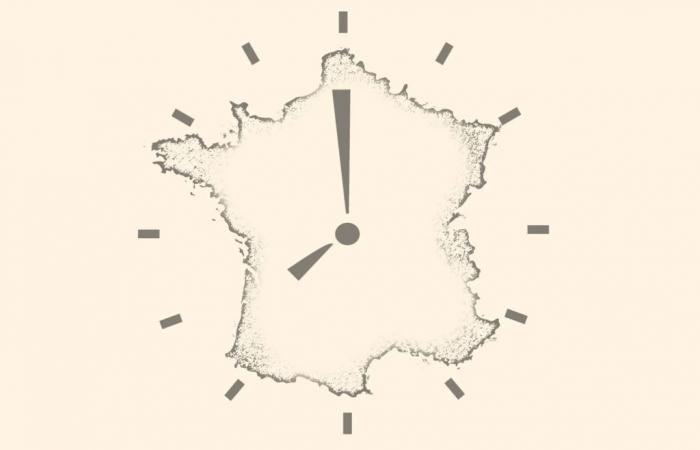
► What it’s about
“Madam, Sir, good evening, it’s 8 p.m. » This refrain, symbol of the universal meeting that television news has long represented, is the starting point of the authors – Mathieu Souquière, Aure Goffman, Raphaël Llorca, among others. While France is said to be multi-fractured, they explored our daily lives to sketch a kaleidoscope of the country at the end of the day. 8 p.m. is time to go home, have dinner, go to a show, go to bed or even watch television. A dozen themes are thus addressed to better understand the lives of the French. With supporting figures, they dispel the idea that they are deeply divided.
Their activities, their tastes and their desires diverge but everything is perhaps not so segmented. An example: would there be the popular France of Cyril Hanouna, against the more urban one of the show Daily on TMC? According to political scientist Tristan Guerra, the borders are more complex. It appears, in the details of the audiences, that the faithful of Don't touch my post also watch Yann Barthès' show more than average.
► Who it’s for
This dive into France at 8 p.m. is done with an almost obstinate optimism. Proponents of the glass half full will therefore find reason to hope. The work indeed invites us to believe that for each problem that society experiences, it carries part of the solution. More skeptical natures will hesitate more but they too will have something to nourish their reflection as the subjects are varied. The large place given to the question of screens should also be noted.
► What we think
A fantastic idea to explore France at this symbolic hour. From a banal unit of time, the authors weave a link between fellow citizens with distant realities. Rather than fueling the discourse of a country too fragmented to understand itself, the work reassures by revealing links. Certainly, today in France, everything or almost everything contrasts between a teenager in his room and a retiree in a nursing home. But the authors' hope lies in this “almost”. Ultimately, aren't teenagers and retirees, in their own way, confronted with the same digital upheavals? The same danger of solitude? The same questions about political support for their age group? Even though it sometimes borders on candor, this France at 8 p.m. warms hearts.
Work coordinated by the collective “Les choses de la vie”, Éditions de l’Aube, 224 p., €18





